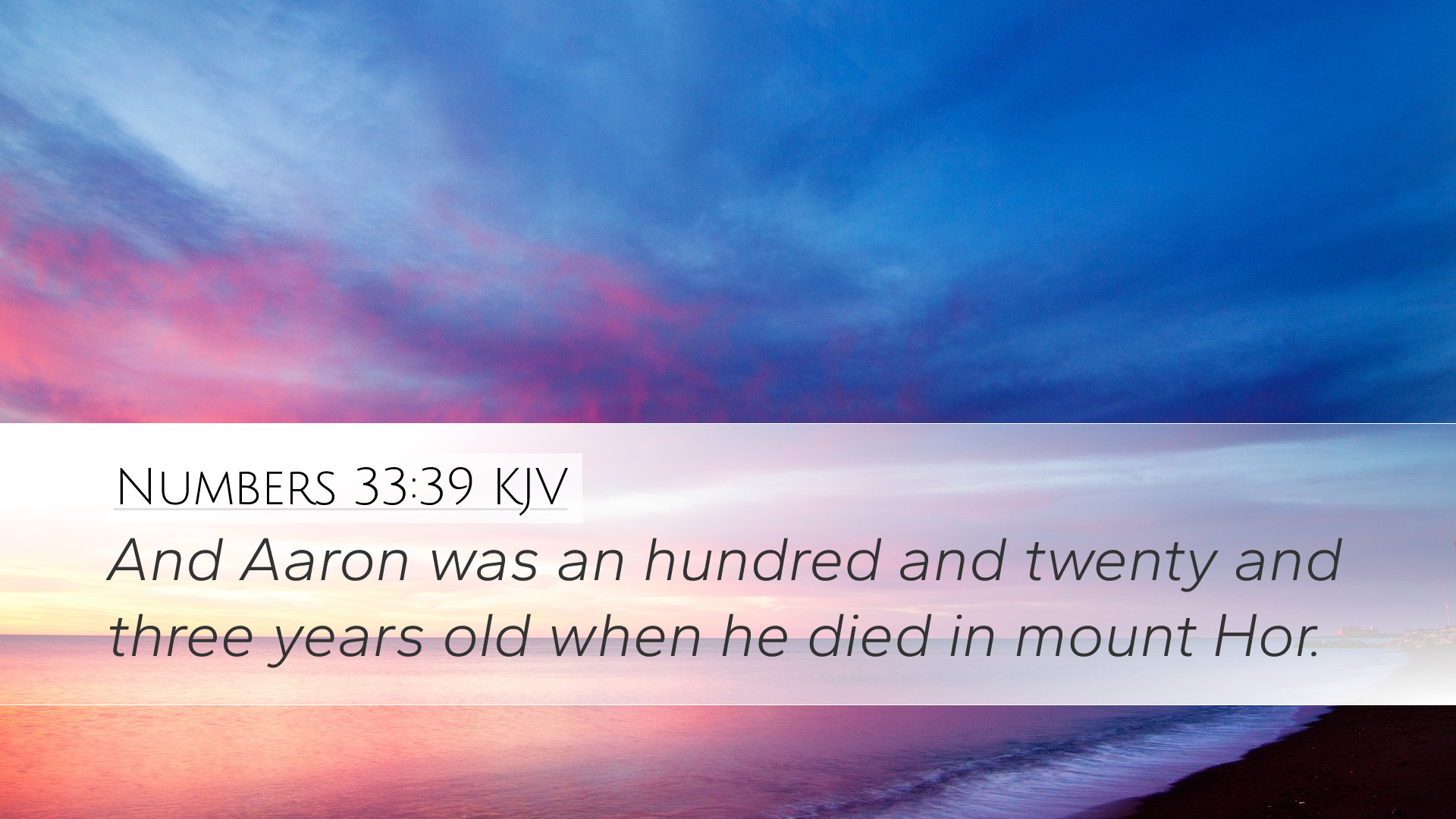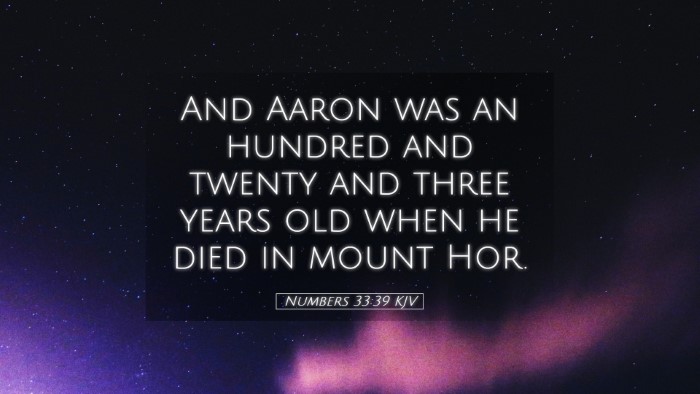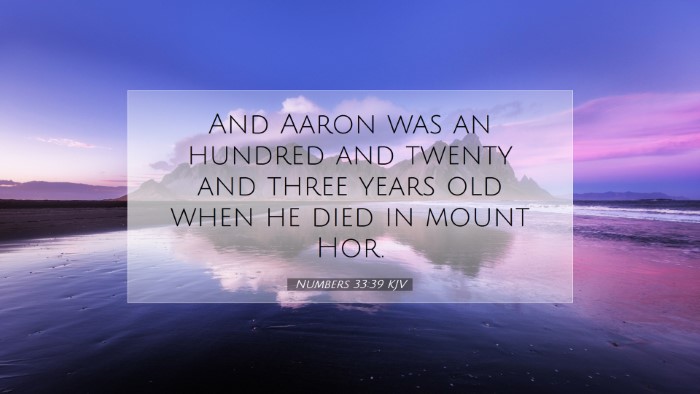Commentary on Numbers 33:39
Verse Context: Numbers 33:39 reads: “And Aaron was an hundred and twenty and three years old when he died in mount Hor.” This verse marks a significant moment in the history of the Israelites during their wilderness journey, pertaining to the leadership and the transition within the Israelite community.
Background and Significance
The death of Aaron, the high priest and brother of Moses, is a pivotal event that bears profound theological and historical implications. As the first high priest, Aaron’s leadership played a critical role in the spiritual governance of the Israelites. His passing signals the end of an era and the need for the community to reflect on the importance of divine leadership and the continuity of priestly duties.
Insights from Public Domain Commentaries
Matthew Henry’s Commentary
Matthew Henry emphasizes the solemnity of Aaron’s death, noting the age and the manner of his passing. He reflects on the significance of Aaron’s role as a mediator between God and the Israelites. Henry points out that Aaron’s life exemplified a deep obedience to God, which is crucial for leaders. His death at such an age serves as a reminder of the inevitable mortality of leaders and the importance of preparing the next generation for leadership.
Henry also notes that Aaron died in “mount Hor,” a location signifying not only a geographical point but also a spiritual juncture for the Israelites. The mountain symbolizes places of revelation and divine encounter. Thus, Aaron’s death on the mountain highlights the transition from earthly leadership to divine oversight, reminding believers to seek God’s guidance continuously.
Albert Barnes’ Notes
Albert Barnes provides a detailed examination of Aaron’s lifespan, noting that he lived 123 years, a number often associated with leadership and wisdom in biblical narratives. Barnes highlights the notion that “old age” in biblical terms is often viewed as a blessing, capturing the respect and authority that comes with age. The mention of Aaron’s age reinforces a theme of divine providence throughout the journey of the Israelites.
Barnes also discusses the implications of Aaron’s death on the Israelites. With the passing of such a key figure, Barnes notes that the community faced uncertainty, which reflects the broader challenges of faith and reliance on God when human leaders fail or are taken. This moment serves as a transition point, prompting the Israelites to look toward God for guidance as they move forward in their journey.
Adam Clarke’s Commentary
Adam Clarke elaborates on the immediate historical context surrounding Aaron’s death, providing insights into the leadership structure during the Israelites' wanderings. Clarke emphasizes the high priestly duties Aaron fulfilled, including his involvement in key rituals and sacrifices that facilitated the community’s relationship with God. Aaron’s role was central to the identity of Israelite worship and community cohesion.
In Clarke’s view, the location of Aaron’s death is also significant. He asserts that Aaron’s ascent to Mount Hor before his passing illustrates an act of obedience and faithfulness to God’s commands. Clarke draws attention to the implications of leadership transitions within the community of faith and the need for steadfastness amidst change. He encourages readers to see Aaron’s legacy as one of faithful service despite human frailty.
Theological Implications
This verse underscores key theological themes relevant to both historical and contemporary faith contexts:
- Mortality and Leadership: The death of leaders like Aaron reflects the biblical truth of human mortality, encouraging current leaders and followers alike to consider their impact and legacy.
- Role of Priestly Intercession: Aaron’s role as a high priest highlights the necessity of intercession in maintaining the covenant relationship between God and humanity. The passing of Aaron illustrates a call to raise up new leaders who will fulfill the intercessory role.
- Divine Guidance in Transitions: Aaron’s death serves as a reminder that transitions, while often challenging, are an integral part of God’s plan. The Israelites needed to trust in God’s sovereignty as they faced their future without Aaron.
- Faithfulness to God’s Commands: The manner of Aaron’s death, with God’s directive presence, reminds believers of the importance of living a life aligned with divine instruction and purpose.
Conclusion
Numbers 33:39 encapsulates a transitional moment in the wilderness journey of the Israelites, marked by the death of Aaron, a leader of significant import in the priestly lineage. Through the insights garnered from public domain commentaries, believers, pastors, students, and theologians can uncover deeper meanings that address leadership, mortality, and faith in transition. It serves as an invitation to engage with the challenges of leadership within the church while simultaneously leaning into the faithfulness of God, who continues to guide and provide for His people.


